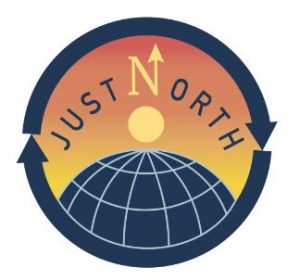Atlantic salmon fishing in northern Fennoscandia is part of controversial ecological, sociocultural, legal, and political questions. This paper presents a study of landscape justice as perceived by stakeholders who practice, manage, and govern traditional, household, and recreational salmon fishing on northern Finland’s border rivers, Tornio (Torne) and Teno (Tana).
Landauer, Joona, & Keskitalo
Atlantic salmon fishing in northern Fennoscandia is part of controversial ecological, sociocultural, legal, and political questions. This paper presents a study of landscape justice as perceived by stakeholders who practice, manage, and govern traditional, household, and recreational salmon fishing on northern Finland’s border rivers, Tornio (Torne) and Teno (Tana). The concept of landscape justice is analysed through the lens of distributive, substantive, procedural, and recognition forms of justice. The data are based on semi-structured stakeholder interviews (N = 15). A qualitative content analysis of the data based on the forms of justice reveals that salmon are associated with diverse environmental, economic, and sociocultural values of the landscape. The study results show the current state governance mode of salmon fishing causes landscape injustice manifesting, in particular, as an unequal distribution of risks and benefits regarding fishing governance and its challenges. There is unclear legislation for Tornio. Landscape justice is violated by regulations causing unclear case law for Teno on the ownership of land or water and related fishing restrictions, as well as a lack of possibilities for local tourist entrepreneurs and household fishermen to participate in decision making. Governmental decisions are mainly based on the overall ecological status of salmon populations at the expense of local variations or the recognition and systemic evaluation of sociocultural and local economic values of the landscape. The results indicate a need for national and cross-border policy decisions to include sociocultural and economic aspects of Atlantic salmon fishing to guide movement towards more just environmental governance.
Read the full Article:
JUSTNORTH
JUSTNORTH is a project designed to explore the multitude of ethical systems that coexist in the Arctic, as a starting point to assess the viability of new economic activities in the region. For the millions of people who live both inside and outside the Arctic and are affected by these economic activities, decisions are made through utilitarian ethical principles: viability of an activity is based on profitability and technical feasibility, with little regard to questions of whether it is ethically right or wrong for the impacted human populations or the environment. Global climate change has launched intense speculation on Arctic resources. Increasing geopolitical tensions among some of the Arctic states increases the importance of respecting different value systems while finding common values to help strengthen the links between Arctic and non-Arctic entities. Significant practice and policy gaps in existing Arctic economic activities have led to development that is unsustainable.
Through understanding current practices of development in the Arctic through the lens of 18 case studies, JUSTNORTH aims to develop conceptual frameworks, indices and a negotiation tool, for reconciling multiple ethics and value systems. These will provide a cornerstone for determining the viability of economic activities in the Arctic, as well as clarify policy, legal, and regulatory pathways for implementing ethic-based decision-making principles.
Global climate change has launched intense speculation on Arctic resources. Increasing geopolitical tensions among some of the Arctic states increases the importance of respecting different value systems while finding common values to help strengthen the links between Arctic and non-Arctic entities. Significant practice and policy gaps in existing Arctic economic activities have led to development that is unsustainable.
Through understanding current practices of development in the Arctic through the lens of 18 case studies, JUSTNORTH aims to develop conceptual frameworks, indices and a negotiation tool, for reconciling multiple ethics and value systems. These will provide a cornerstone for determining the viability of economic activities in the Arctic, as well as clarify policy, legal, and regulatory pathways for implementing ethic-based decision-making principles.
Project details
- Project title: “Toward Just, Ethical and Sustainable Arctic Economies, Environments and Societies”
- Funding scheme: European Union Horizon 2020 Programme (EU H2020, Grant agreement ID: 869327)
- Duration: 3 years (1 June 2020 – 30 November 2023)
- Project coordinator: Uppsala Universitet, Dr. Corine Wood-Donnelly
- Project website: www.justnorth.eu/
